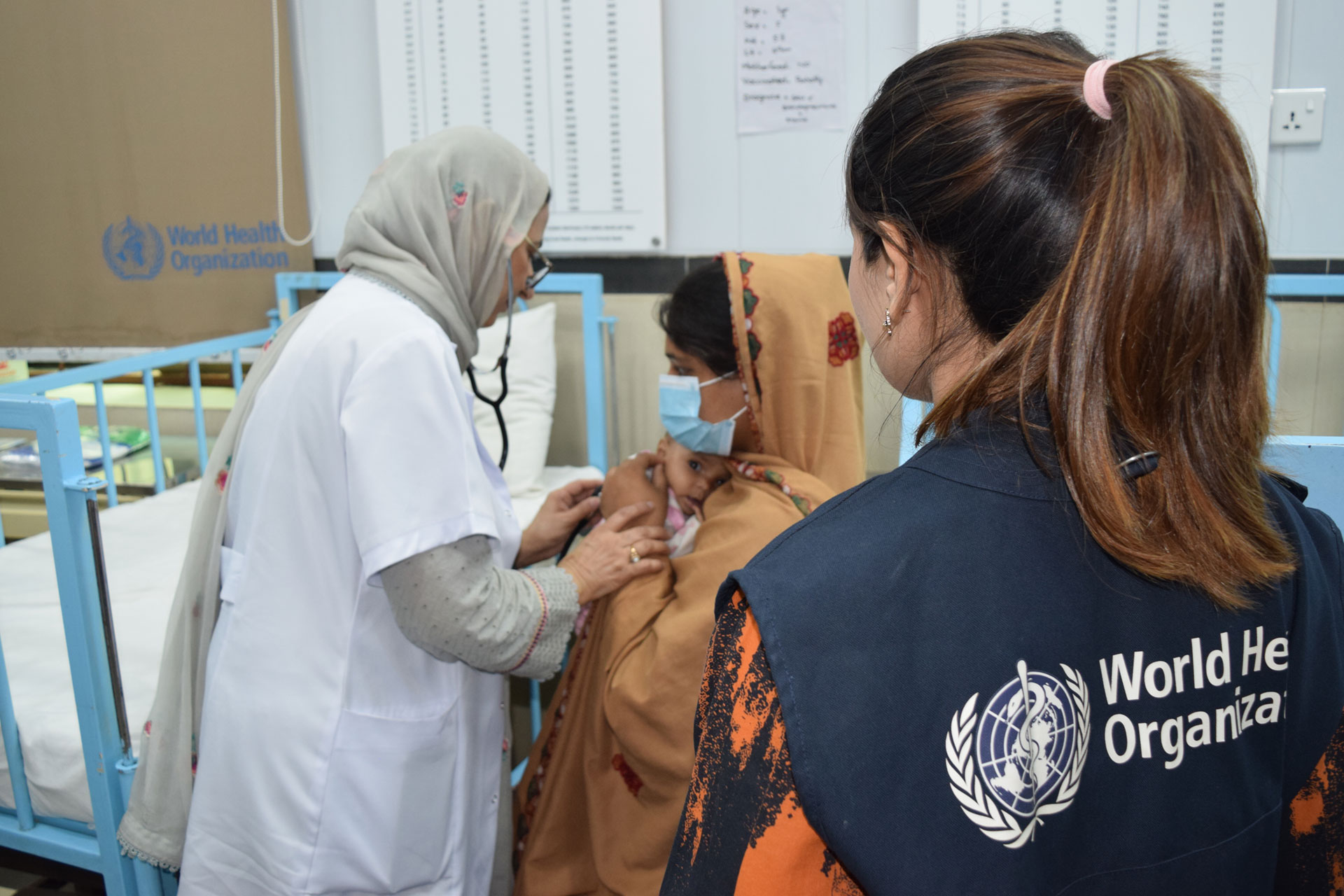Only 48.4% of Pakistani children under six 6 months are exclusively breastfed, well below the World Health Assembly’s 2030 target of 60%.
 A mother and a child in a WHO-supported nutrition stabilization centre where mothers receive counselling on breastfeeding. Photo credit: WHO/Sajjad Hafeez10 August 2025, Islamabad, Pakistan – As World Breastfeeding Week 2025 ends, the World Health Organization (WHO) is drawing attention to the fact that only 48.4% per cent of infants under 6 months are exclusively breastfed in Pakistan, well below the World Health Assembly target of 60% by 2030. This shortfall results in losses of US$ 2.8 billion annually due to the negative impact of low breastfeeding rates on public health, according to data from Nutrition International’s Cost of Not Breastfeeding Tool.
A mother and a child in a WHO-supported nutrition stabilization centre where mothers receive counselling on breastfeeding. Photo credit: WHO/Sajjad Hafeez10 August 2025, Islamabad, Pakistan – As World Breastfeeding Week 2025 ends, the World Health Organization (WHO) is drawing attention to the fact that only 48.4% per cent of infants under 6 months are exclusively breastfed in Pakistan, well below the World Health Assembly target of 60% by 2030. This shortfall results in losses of US$ 2.8 billion annually due to the negative impact of low breastfeeding rates on public health, according to data from Nutrition International’s Cost of Not Breastfeeding Tool.
In Pakistan, low breastfeeding rates trigger over 33 700 deaths, 6.6 million child diarrhoea cases and 2.7 million school years lost annually, according to data from Nutrition International. The country’s expenditure on breastmilk substitutes – which are less healthy for infants – exceeds US$ 888 million annually.
Under the international theme “Prioritize breastfeeding: Create sustainable support systems”, and following a recent global joint statement by WHO and UNICEF, WHO reiterated that breastfeeding is one of the most effective ways to ensure a baby’s health, development and survival during the earliest stages of life. Breast milk acts as a first vaccine, providing protection against multiple diseases such as diarrhoea and pneumonia.
“Investing in informing and supporting all mothers to prioritize breastfeeding is investing in a healthier Pakistan. WHO will continue to fully support Pakistan and its partners to promote breastfeeding, which is the safest and best way to protect a baby’s health and, in addition, generates US$ 35 in economic returns for every dollar invested,” said WHO Representative in Pakistan Dr Dapeng Luo.
In partnership with the Government of Pakistan and partners, since January 2024, WHO has promoted breastfeeding by providing counselling to over 172 000 mothers in 157 nutrition stabilization centres (NSCs) across the country. The Organization has also supported initiatives such as the training of more than 700 workers – including doctors, nurses and Lady Health Visitors – the Sindh Protection and Promotion of Breastfeeding and Young Child Nutrition Act (2023), the setting up of lactation management rooms in NSCs, infant and young child feeding guidelines and training packages, and trainings on the Baby Friendly Hospital Initiative.
About WHO
Founded in 1948, WHO is the United Nations agency that connects nations, partners and people to promote health, keep the world safe and serve the vulnerable. We work with 194 Member States in 150+ locations – so everyone, everywhere, can attain the highest level of health. WHO has been present in Pakistan – a founding member of the Organization – since 1960. For more information, visit https://www.emro.who.int/countries/pak/index.html. Follow WHO Pakistan on Twitter and Facebook.
For additional information, please contact:
Maryam Yunus, National Professional Officer – Communications, WHO Pakistan, This e-mail address is being protected from spambots. You need JavaScript enabled to view it (copying This e-mail address is being protected from spambots. You need JavaScript enabled to view it ).
José Ignacio Martín Galán, Head of Communications, WHO Pakistan, This e-mail address is being protected from spambots. You need JavaScript enabled to view it




